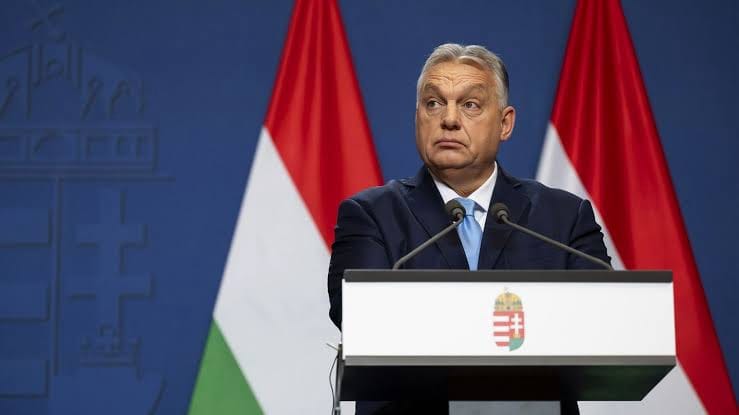Hungary backs down, EU sanctions on Russia extended at last minute
Hungary has dropped its veto and agreed to extend the European Union’s sanctions against more than 2,400 Russian individuals and entities, ending a tense standoff just 48 hours before the measures were set to expire.

File Source: Euro
Hungary has dropped its veto and agreed to extend the European Union’s sanctions against more than 2,400 Russian individuals and entities, ending a tense standoff just 48 hours before the measures were set to expire.

The last-minute decision came on Friday morning after intense behind-the-scenes negotiations, bringing relief to EU diplomats who had been scrambling to prevent a lapse in the bloc’s response to Russia’s full-scale invasion of Ukraine.
Sanctions in the EU must be renewed every six months by unanimous agreement, giving any single member state the power to derail the process. Hungary had repeatedly blocked the extension throughout the week, with failed attempts to reach consensus on Monday, Wednesday, and Thursday. Budapest insisted on removing several names from the blacklist, and after prolonged discussions, a compromise was reached: four individuals were removed, three of whom had been on Hungary’s requested list. Additionally, three deceased individuals were excluded.
“They came to their senses, I guess,” said a senior diplomat, referring to Hungary. “They realized siding with Putin is not the best course of action.”
This marks the second time in three months that Prime Minister Viktor Orbán’s government has brought Brussels to the brink over its sanctions regime. In January, Hungary objected to sectoral restrictions covering energy, finance, and luxury goods, relenting only after securing a non-binding statement on energy security. This time, its focus was on the blacklist, which includes military commanders, government officials, oligarchs, Wagner Group mercenaries, and hundreds of Russian companies across the banking, transport, energy, and media sectors. Both President Vladimir Putin and Foreign Minister Sergey Lavrov remain sanctioned.
Hungary has argued that Donald Trump’s likely return to the U.S. presidency and his stated desire for a peace deal should prompt the EU to reassess its approach to Ukraine. However, other EU members remain firm in their belief that pressure on Moscow must continue, supporting a “peace through strength” strategy that ensures Ukraine remains well-armed in any negotiations.
“Hungary has a different strategic approach on Ukraine,” said António Costa, president of the European Council. “That means that Hungary is isolated among the 27. We respect Hungary’s position, but it’s one out of 27. And 26 are more than one.”
Orbán, however, pushed back. “The European Union has isolated itself from the U.S., isolated itself from China because of the trade war, and isolated itself from Russia because of the sanctions policy. So if someone is isolated here, it’s the European Union.”
The tense negotiations coincided with an unexpected shift in U.S.-Ukraine relations. This week, Kyiv announced its willingness to implement a 30-day ceasefire if Russia reciprocated, while Washington agreed to immediately lift its suspension on military assistance and intelligence-sharing with Ukraine. “Ball is in Russia’s court,” said U.S. Secretary of State Marco Rubio.
Putin responded cautiously, saying he was open to the ceasefire but wanted certain “nuances” clarified before committing—strongly implying that Ukraine should stop receiving Western weaponry during the truce.
Meanwhile, the European Commission has already started drafting a 17th package of sanctions against Russia, ensuring that even as one dispute is resolved, the battle over EU policy toward Moscow is far from over.














